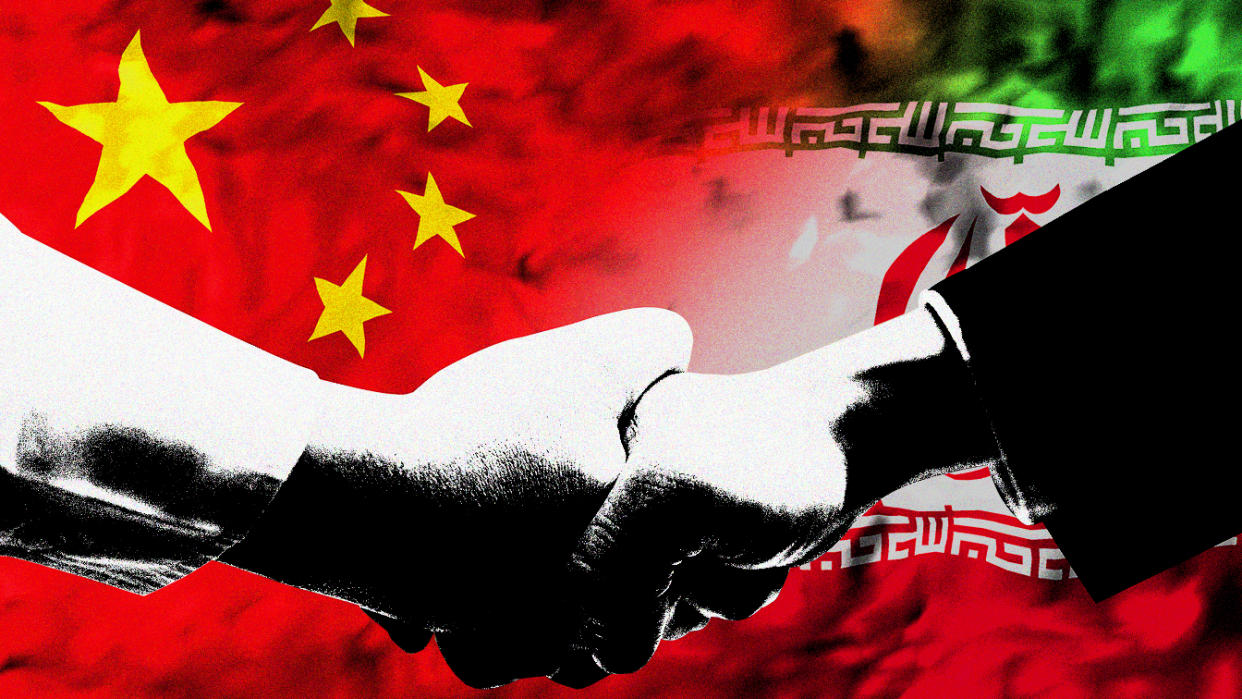Report details China and Iran's 'pragmatic' anti-U.S. partnership

WASHINGTON — Leaders in Tehran and Beijing have grown closer over recent years, developing economic, intelligence sharing and diplomatic ties in a partnership broadly “opposed to the U.S.-led international order,” according to a new report released by the U.S.-China Economic and Security Review Commission.
In line with President Biden’s contention that the U.S. is facing a monumental test to demonstrate the value of democracy over autocracy, the report outlines two opponents to that proposition: an increasingly powerful China and a destabilizing Iran.
While Beijing has some reservations toward coziness with Tehran, including a fear of a conflict between Tehran and Washington threatening energy markets, the two U.S. adversaries find common ground counterbalancing Western systems and deriving mutual benefit, the authors of the report suggest.
In particular, according to the report, Iran helped spread popular Chinese anti-U.S. disinformation concerning the COVID-19 pandemic in recent months and propped up other domestic Chinese policies, while Beijing circumvents global sanctions to be “Iran’s primary oil customer.”
The report also cites aYahoo News series of investigations about Iran’s intelligence sharing with China that resulted in the detention and deaths of U.S. intelligence sources around the world, threatening U.S. security.
The U.S.-China Economic and Security Review Commission, an independent government agency created in 2000 under the Floyd D. Spence National Defense Authorization Act, looks at the national security implications of trade and economic ties between the United States and China, drafting annual reports to Congress in addition to publishing more specific, subject-matter investigations.
While the reports describe ties between Beijing and Tehran as initially more “limited,” the relationship has solidified in recent years, including through a recent formalized economic and security agreement, outlining an expansion in Chinese presence in Iranian industries as well as a $400 billion investment in exchange for Iranian resources, primarily oil, and military cooperation. Some experts dismissed the arrangement and the advertised investment as overblown, but it is evidence of ongoing partnership, the authors suggest.
The commission report says Beijing needs to balance its commitments to Iran with other priorities in the region, including increasing ties to oil-rich Gulf nations like the United Arab Emirates and Saudi Arabia. Additionally, Beijing benefits from U.S. distraction in the Middle East and U.S. security arrangements, the authors argue.
However, a more intense conflict between the U.S. and Iran, including a war, would likely be damaging to Chinese energy interests in the region.
As Tehran’s international isolation and reliance on Beijing for economic and diplomatic support against U.S. pressure have increased, even issues like Beijing’s detention of Uyghur Muslims in Xinjiang haven’t proved a roadblock to cooperation between the two countries, according to the report. Iran signed on to a letter to the U.N. Human Rights Council supporting the Xinjiang detention system in 2019, and Iranian media outlets have defended the policy, which U.S. officials have decried as a form of “genocide.”
While partnership between Beijing and Tehran may include some caveats, the authors of the report conclude, “the two regimes’ shared anti-U.S. policy orientation has long-term implications for Washington’s interests in both the Middle East and the Indo-Pacific.”
____
Read more from Yahoo News:


